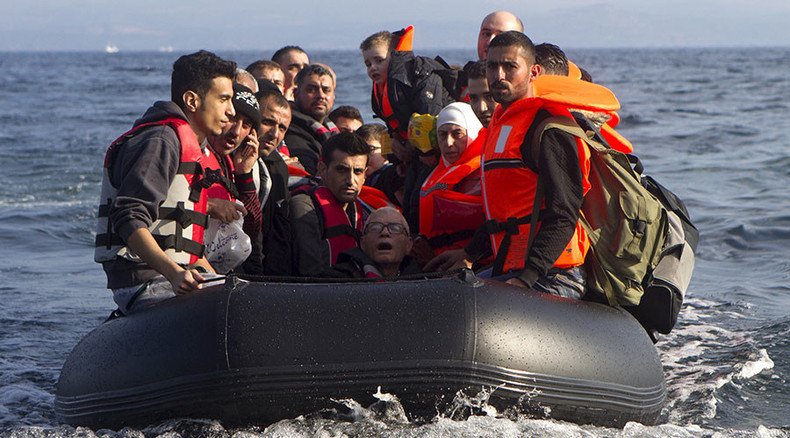Refugee rhetoric reminiscent of pre-Holocaust sentiment – UN human rights chief

Language used by British and European politicians when discussing the ongoing refugee crisis is reminiscent of the rhetoric used to abandon German and Austrian Jews and paved the way for the Holocaust, the UN human rights commissioner has warned.
In an interview, Zeid Ra’ad al Hussein called the language of many European politicians “bewildering,” arguing that terms like “swarms of refugees” dehumanized people.
His warning comes after British Home Secretary Theresa May controversially asserted that mass immigration made it “impossible to build a cohesive society.”
Zeid said the language being used to describe the crisis reminded him of the 1938 Evian conference.
At the conference the leaders of the US, UK and Australia refused to take in Jewish refugees, arguing they would be too disruptive to the economy.
Zeid said the decisions made at the conference led Hitler to consider extermination as an alternative to deportation.
He called current debates over resettling refugees from the Middle East and North Africa “a political issue that is being ramped up by those who can use the excuse of even the smallest community as a threat to the sort of national purity of the state.
“If you just look back to the Evian conference and read through the intergovernmental discussion, you will see that there were things that were said that were very similar.
“Indeed, at the time, the Australian delegate said that if Australia accepted large numbers of European Jews they’d be importing Europe’s racial problem into Australia. I’m sure that in later years, he regretted that he ever said this – knowing what happened subsequently – but this is precisely the point. If we cannot forecast the future, at least we have the past as a guide that should wisen us, alert us to the dangers of using that rhetoric,” he said.
Asked whether May should have reconsidered the wording of her speech, Zeid said the lessons of history should “make people think.”
UK withdraws Med rescue boats. Meanwhile 5 children drowned in the last week trying to cross http://t.co/Ya87I8tabapic.twitter.com/v1zzbhJrup
— RT UK (@RTUKnews) October 8, 2015“Closer examination of history and a closer examination of what happened in Europe in the early part of the 20th century should make people think very carefully about what it is that they’re saying. These are human beings: even in the use of the word migrants, somehow it’s as if they don’t have rights. They all have rights just as we have rights.”
Zeid praised the British government for the decision to take in 20,000 Syrian refugees by 2020, but said more needed to be done.
He suggested European nations consider the proposal by UN special rapporteur on migrants Francois Crepeau which states that European nations should take in 1 million Syrian refugees during the next five years.












